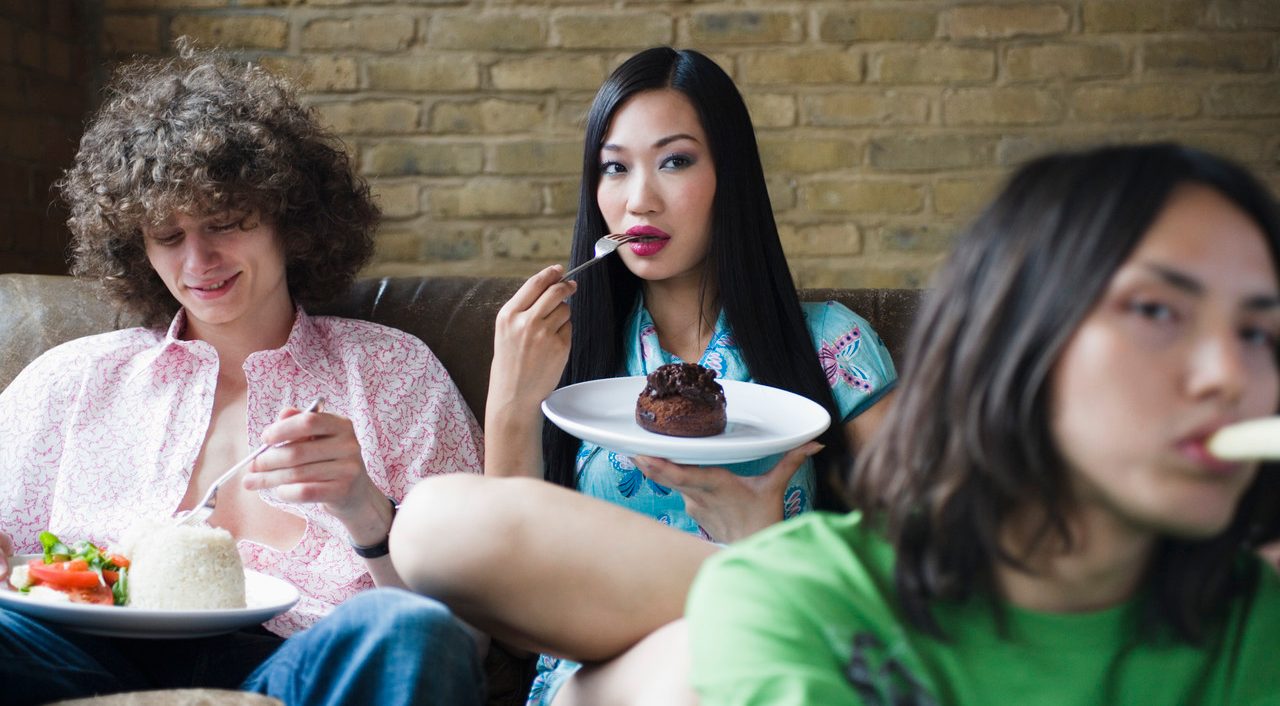Death Cafés Help the Living Face Mortality

Grief, curiosity, and anxiety about life’s end spur the Death Café phenomenon, where people, often strangers, get together to chat about death.
There’s one certainty about life: Nobody gets out alive. Despite that reality, most of us avoid thinking about death’s inevitability, much less talking about it, unless we are faced with the passing of a loved one or feel in danger of our own demise.
But, instead of fearing death and pretending it won’t ever happen, having an open conversation about all aspects of death might make us less anxious and even help us live our finite lives more fully. That’s the idea behind a growing phenomenon known as Death Cafés, where people, often strangers, get together to chat about death — and to eat cake and drink tea in an accepting, casual atmosphere. These aren’t counselling sessions but discussion groups in which nobody sells cemetery plots or anything else or pushes a particular religious viewpoint.
YOU MIGHT ALSO LIKE: Our End of Life section
You won’t find a Death Café listed in the phone book under restaurants. The groups are free-formed social franchises that may meet monthly or just once in a while in all kinds of physical locations. Death Cafés have been offered in a yurt, funky coffee shops, people's houses, and at the Royal Festival Hall in London.
Last spring, approximately 40 people met at the conference room at Atlanta’s historic Oakland Cemetery. Each cafe is different, with conversations flowing around anything related to death — including what happens after death, how to talk to a partner about death, coping with grief, advance directive planning, physician-assisted dying, and funeral arrangements.
Sociologist Bernard Crettaz hosted the first of what would become Death Cafés in Switzerland over a decade ago. “I am never so in tune with the truth as during one of these soirées. And I have the impression that the assembled company, for a moment, and thanks to death, is born into authenticity,” he wrote in his book about the events, “Cafés Mortels: Sortir la Mort du Silence.”
Six years later, a Death Café was held in London, and the gatherings quickly spread across Europe, North America, and Australia, attracting about 18,000 participants. Death Cafés have now been held in 75 countries. And, largely due to the COVID-19 pandemic, meetings are mostly held in virtual Death Cafes via Zoom, Skype, Facetime, and other popular online platforms.
You can find a list of upcoming Death Café meetings on the organization’s website.
Anyone who is interested in hosting a Death Café event, in person or virtually, agrees to abide by the guidelines and principles of Death Cafés (which are non-profit events, usually free or with requests for small donations).
“I am interested in dying and death, but it doesn’t come from a morbid place. My focus is on life and the living. ... I look to my own death as a call to live my life fully. I look to the death of each person in my life as a call to love that person with all my heart,” said Kate Brassington, who has helped host Death Cafés in Portland, Oregon. “Every person I’ve invited into a conversation (about death) with an open heart and an open mind looked me in the eye, took my hand, and thanked me for letting them be who they are — a person who will die and has one chance to do it and has one chance to live, because of it.”
Facing up to mortality, as Death Café participants do, is a subject that has been placed under scientific scrutiny.
University of Missouri researchers looked at studies about people talking about death to find out if it triggered negative feelings such as fear and moroseness. The results showed that after something stimulates a person’s awareness of death, there’s a frequent positive reaction about life and the world. For example, after contemplating future death or discussing real-life deadly tragedies, such as the terrorist attacks of 9/11, research participants in one study expressed a desire to make better health decisions, increased their efforts to be helpful to others, reduced divorce rates, and even expressed fewer hardcore militaristic attitudes.
"Once we started developing this study we were surprised how much research showed positive outcomes from awareness of mortality," said researcher Jamie Arndt, PhD, professor of psychological sciences at the University of Missouri. "It seems that people may be just as capable of 'looking on the bright side of death,' as the Monty Python song says."
Although people die at all ages, the extreme elderly are one group faced with knowing death is headed their way, sooner rather than later. So Karl A. Pillemer, PhD, professor of human development at Cornell University, interviewed elders to see how they accepted the inevitable and approaching end of their lives.
In his book “30 Lessons for Loving: Advice from the Wisest Americans on Love, Relationships, and Marriage,” Pillemer related how the vast majority of elders said they thought about death much less in old age than when they were younger — a finding that backs up other research that shows anxiety about death goes down with advancing age. Mostly, those of advanced age accepted the reality of their eventual deaths with curiosity, interest, and acceptance.
“I'm not one bit afraid. Well, if you stop to think about it, it's a natural thing. Everything dies. Whether we come back or not or what happens there, I don't know,” Edwina Elbert, 94, told Pillemer, who interviewed her for his book. “But it's like my husband used to say whenever we did discuss it: ‘If you go to heaven, how wonderful. But if you go to sleep, what's wrong with that?’”
Updated:
April 12, 2022
Reviewed By:
Christopher Nystuen, MD, MBA and Janet O'Dell, RN